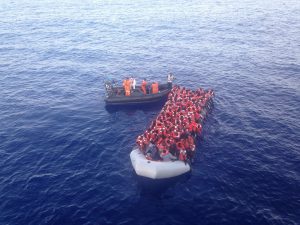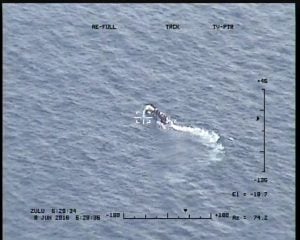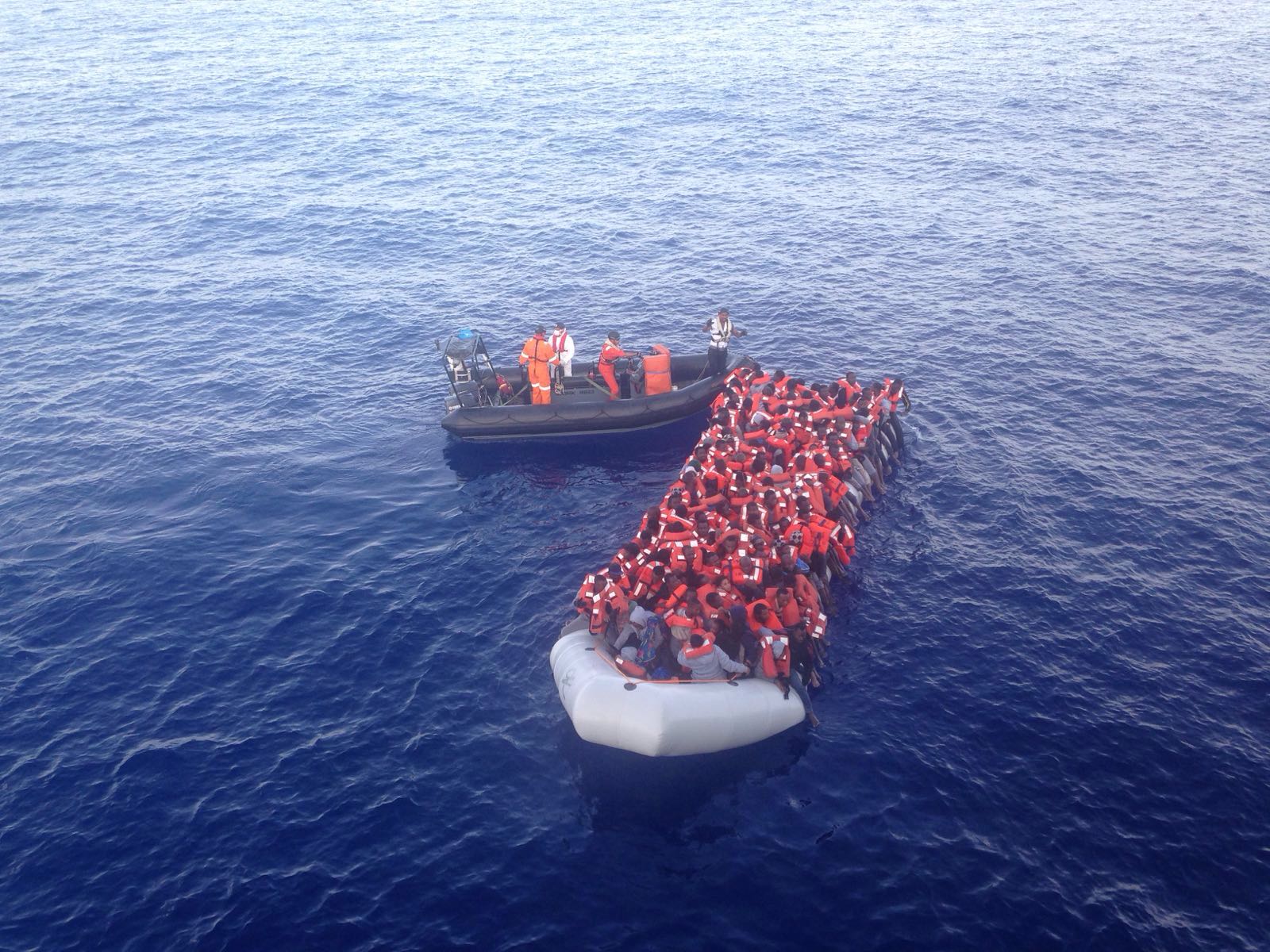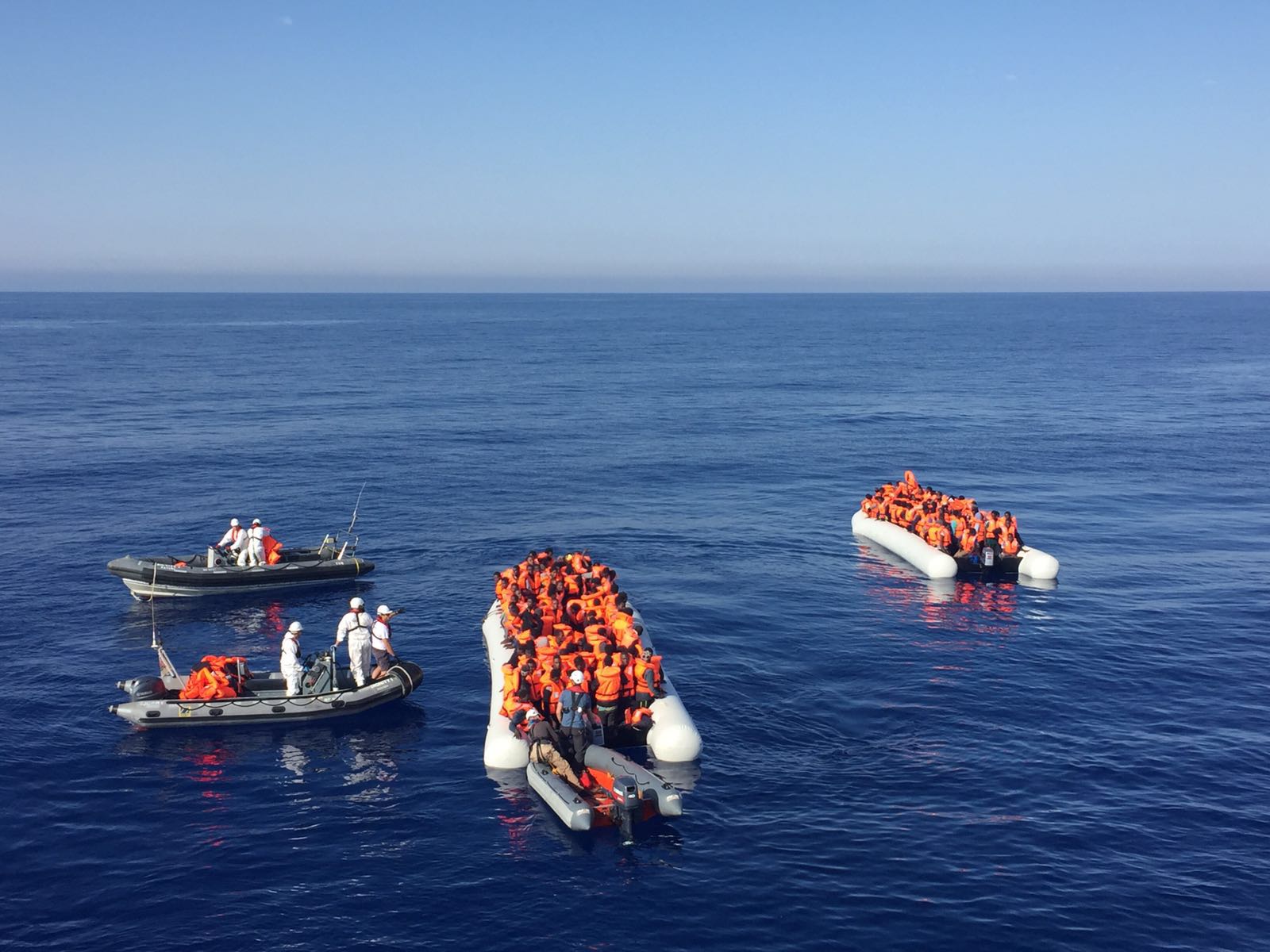By Sami Zaptia.

London, 9 June 2016:
Two leading rescue NGOs operating in the Mediterranean Sea, MSF and MOAS, yesterday reported rescuing 955 . . .[restrict]migrants departing from Libya. MSF reported 828 whilst MOAS reported 127 rescued at sea.
Maltese-based rescue NGO MOAS reported that the migrants its ships rescued were initially spotted in distress in rubber boats by its camera drones from its Phoenix ship. They were then picked up its sister ship Responder. Post-rescue medical care was provided on-board by Italian NGO Emergency.
Ironically, MOAS had just launched its rescue ships into the Mediterranean for the 2016 season earlier this week. Moreover, Responder, is a new addition this year and was out to sea only Monday. Yesterday’s operation was its debut rescue mission. Responder went on to rescue another 27 separate migrants who said that they had been at sea for two days.

The 828 rescued by MSF yesterday were picked up by their ships Argos and Aquarius. MSF reports that they were all rescued from rubber boats and were a mixture of men, women and kids.
“Yes we’re happy to be alive but our brothers are still in Libya. Last night they were beating us with iron sticks”, MSF reported one rescued migrant as saying. All MSF rescued migrants were taken to Italy, the NGO reported.
The UN’s migration agency, the IOM has reported that nearly 3,000 migrants have died in the Mediterranean sea off the Libyan coast.
The Libyan Cost Guard, meanwhile, reported yesterday that it had intercepted 117 illegal migrants attempting to cross the Mediterranean off Garabulli, an hour east of Tripoli.
Meanwhile, the EU announced on Tuesday its new ‘’compact’’ cooperation policy with countries from where illegal migrants originate. The package is to include a mixture of ‘’carrots and sticks’’, with aid conditional on states cooperating on restraining their citizens from migrating. The EU also confirmed that it would not be returning migrants to Libya.
This comes after Libya confirmed that it would not be taking any illegal migrants who had entered without documents, passports or visas back on its territory.
It will be recalled that the problem of illegal migrants transiting through Libya is closely linked to the fact that there is no one strong Libyan government in Libya nor any strong centralized institutions, including the lack of a centralized police force or army. It is also associated with the widespread existence of weapons and militias. [/restrict]







